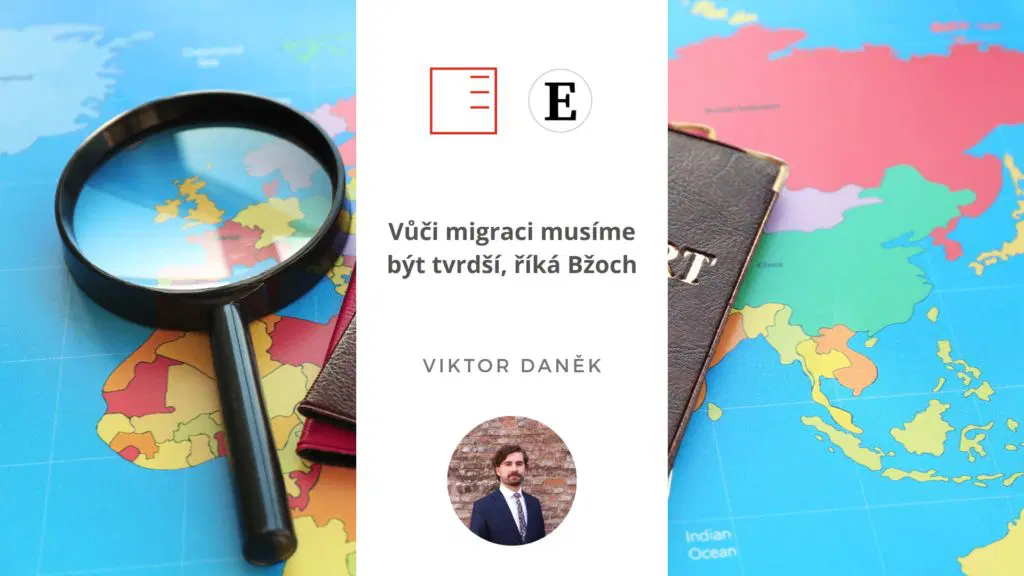
Ekonomický deník | Migration problems are effectively eliminated by the new pact
More info 1. 5. 2024
1. 5. 2024
The migration pact recently approved by the European Parliament brings a number of effective steps to prevent illegal migration, but it is certainly not a perfect anti-immigration tool, said Jaroslav Bžoch, candidate for MEP and vice-chair of the Foreign Affairs Committee and the European Affairs Committee of the Chamber of Deputies. Viktor Daněk, Deputy Director of EUROPEUM Institute, commented on the functioning of the EU Migration Pact and the opinion of the Czechs on this pact for Ekonomický deník.
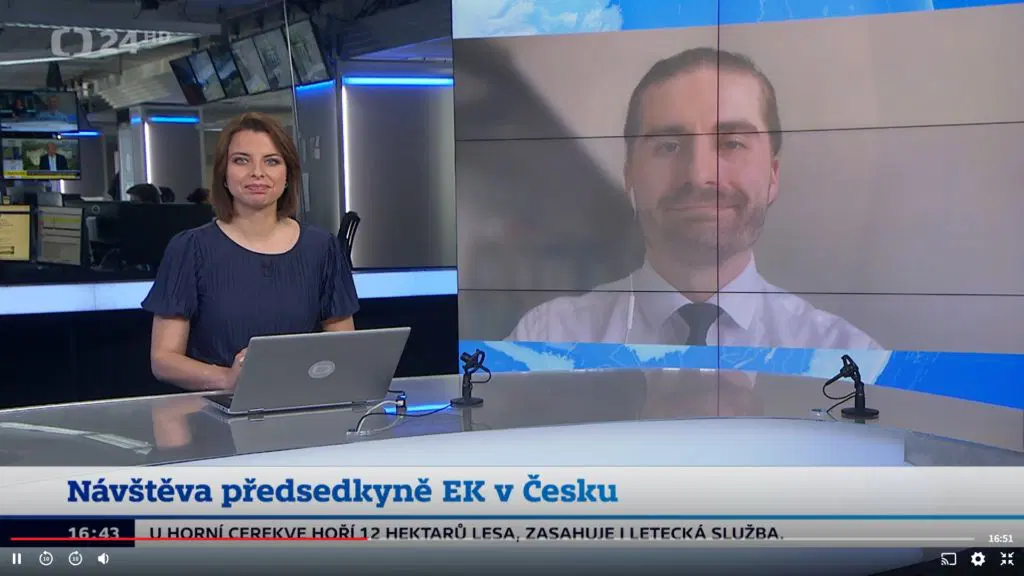
ČT24 | Visit of the European Commission President to the Czech Republic
More info 30. 4. 2024
30. 4. 2024
European Commission President Ursula von der Leyen arrived in the Czech Republic. She met with President Petr Pavel and Prime Minister Petr Fiala. The visit was part of the campaign ahead of the European Parliament elections in June. Viktor Daněk, Deputy Director of EUROPEUM Institute, commented on Ursula von der Leyen's arrival in the Czech Republic.
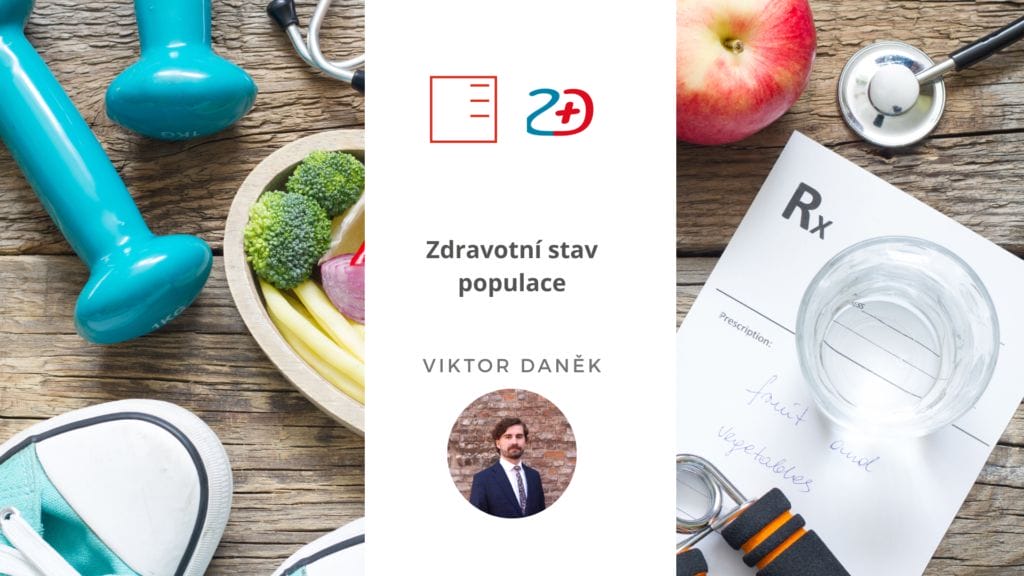
Zdravotnický deník | Population Health
More info 30. 4. 2024
30. 4. 2024
Politicians and companies should start putting more emphasis on prevention and education about active and healthy lifestyles, because the health of the population has a major impact on the competitiveness of companies and the national economy. Viktor Daněk, Deputy Director of EUROPEUM Institute, commented on this issue.

Máte slovo | Migration Pact
More info 25. 4. 2024
25. 4. 2024
Will the migration pact make it compulsory for the Czech Republic to accept refugees? Will the pact limit the flow of refugees into Europe? Viktor Daněk, deputy director of the EUROPEUM Institute, discussed this on Czech Television's programme Máte slovo.

Evropa pro Čechy | As long as there are Ukrainians in the Czech Republic, we have an exemption from the migration pact
More info 24. 4. 2024
24. 4. 2024
There are simply no quotas in the migration pact that would force the Czech Republic to accept refugees from other EU countries, Viktor Daněk, deputy director of the EUROPEUM Institute, says unequivocally on the Deník's Evropa pro Čechy podcast.
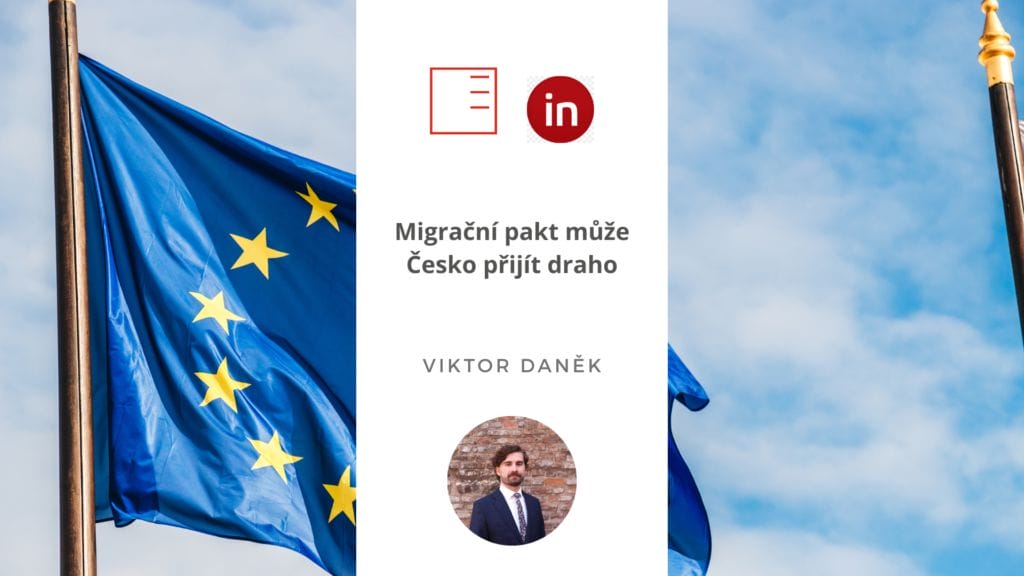
Novinky.cz | Migration Pact could cost the Czech Republic millions of crowns
More info 23. 4. 2024
23. 4. 2024
The Czech Republic will be able to apply for an exemption from the migration pact because of Ukrainian refugees on its territory. If this exemption is not granted, the Czech Republic will either have to accept more migrants or pay a sum of up to 480 million CZK per year into an EU fund. Viktor Daněk, deputy director of the EUROPEUM Institute, commented on the migration pact for online outlet Novinky.cz.

CNN Prima News | European migration pact: does the Czech Republic have an exemption or not?
More info 22. 4. 2024
22. 4. 2024
The Chamber of Deputies discussed the EU Migration Pact for over three hours. The opposition criticises the pact and claims that it indirectly introduces quotas. At the same time, there is uncertainty about the interpretation of a possible exemption. What does the pact stipulate and what impact could it have on the Czech Republic? Viktor Daněk, deputy director of the EUROPEUM Institute for European Policy, commented for Partie Plus on CNN Prima News.
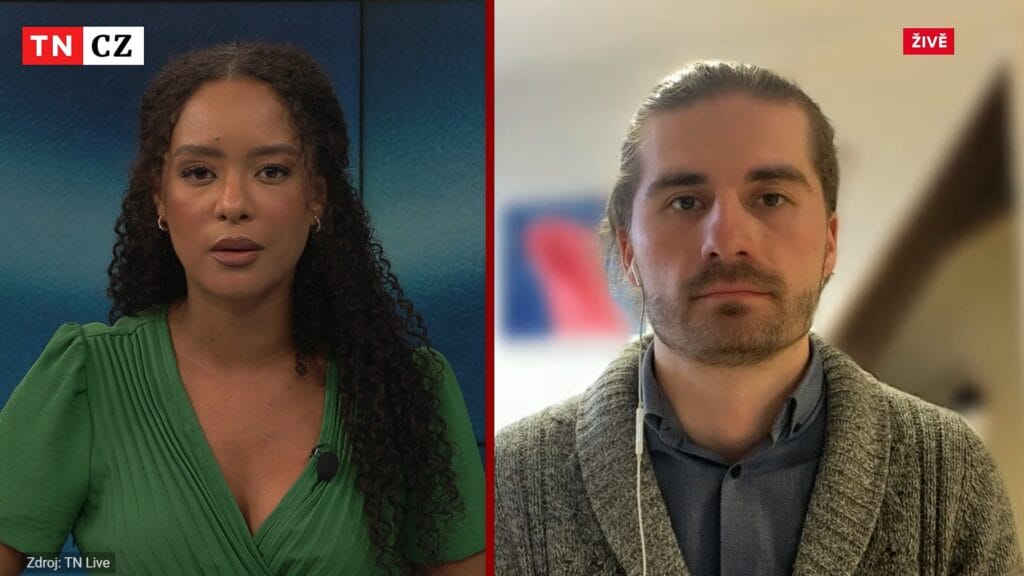
TN.cz | The migration pact main topic in the Czech lower chamber, with meeting lasting hours
More info 22. 4. 2024
22. 4. 2024
Czech MEPs debated the EU migration pact for over three hours. What came out of the session of the Chamber of Deputies on the migration pact? How do the government and the opposition feel about it? And what are the main issues that the Czech opposition have a problem with it? Deputy director of EUROPEUM Institute Viktor Daněk, commented for TN.cz
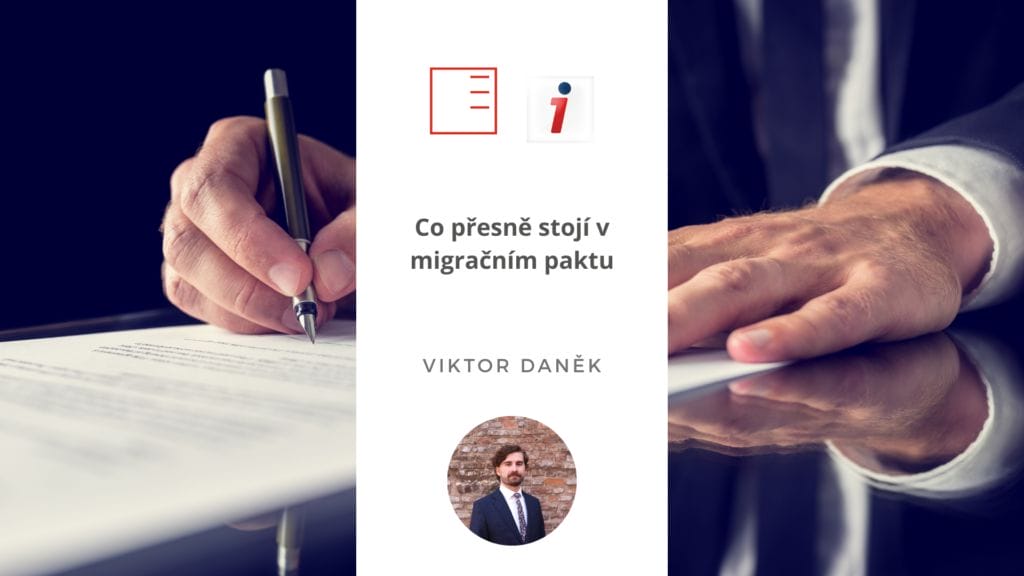
iDnes.cz | What exactly is in the migration pact
More info 19. 4. 2024
19. 4. 2024
The European Union has approved a migration pact, and from 2026 individual states will either accept their share of refugees or pay to opt out of this obligation. However, since the Czech Republic has already accepted a large number of refugees since the outbreak of the war in Ukraine, it should temporarily be exempt from this obligation. However, as noted by Viktor Daněk, deputy director of the Institute for European Policy EUROPEUM, this is not an exemption explicitly granted to Czechia. Exemptions are determined based on the number of people granted asylum or similar protection in a given country.
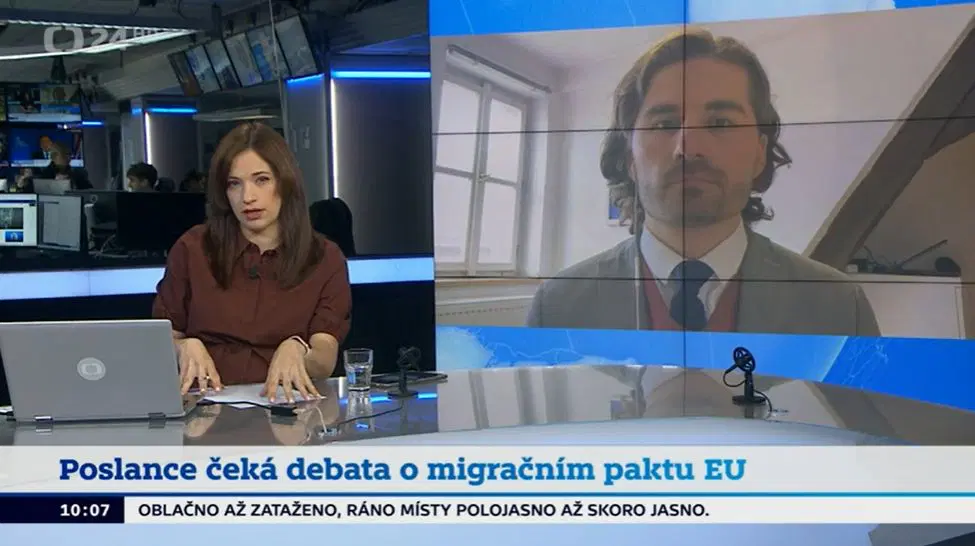
ČT24 | The Migration Pact is about border protection, but it also brings new responsibilities
More info 18. 4. 2024
18. 4. 2024
The European Parliament recently approved the Migration Pact, which, among other things, deals with the relocation of asylum seekers. Minister of the Interior Vít Rakušan claims Czechia will have an exemption from solidarity due to the number of Ukrainian refugees it accepted. The Migration Pact will take effect in two years, and its strengths and weaknesses were analysed by Viktor Daněk, Deputy Director of the EUROPEUM Institute.
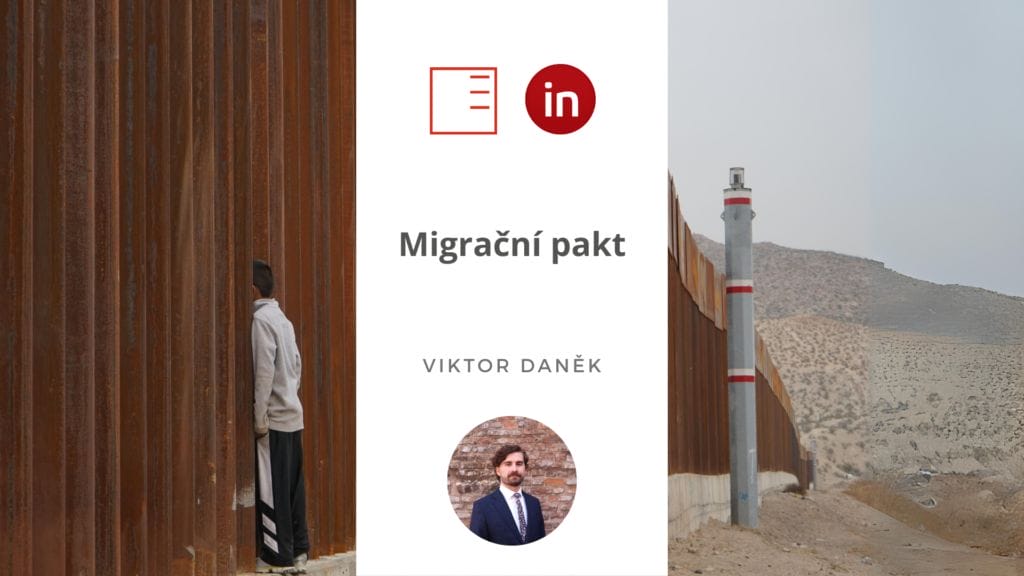
Novinky.cz | Migration Pact: Non-compliance could lead to fines
More info 18. 4. 2024
18. 4. 2024
The Migration Pact consists of ten legislative proposals that passed the European Parliament last week. They still have to be voted on in the Council of Ministers. Failure to comply with these regulations could lead to lawsuits and heavy fines. Viktor Daněk, Deputy Director of EUROPEUM Institute, commented on the Migration Pact for Novinky.cz.
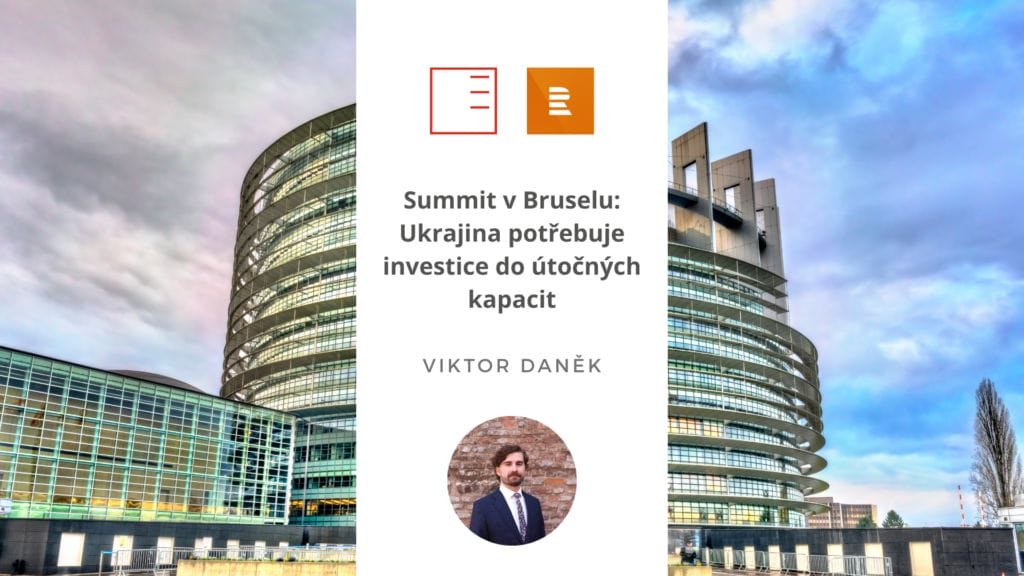
Dvacet minut Radiožurnálu | Summit in Brussels: Ukraine needs investment in offensive capabilities
More info 17. 4. 2024
17. 4. 2024
At Brussels, on April 17th and 18th, an extraordinary summit of European Union took place. Originally it was intended to focus on enhancing the bloc's competitiveness, but the agenda of the meeting shifted towards discussing military support for Ukraine, and the situation in the Middle East. Viktor Daněk, deputy director of the Institute of European Policy EUROPEUM provided analysis on the topic for a daily episode of Dvacet minut Radiožurnálu.